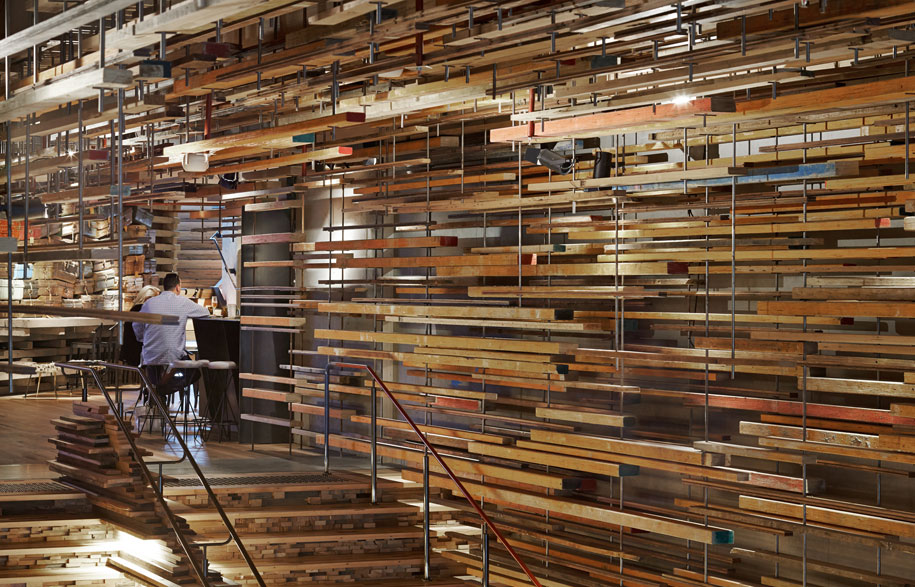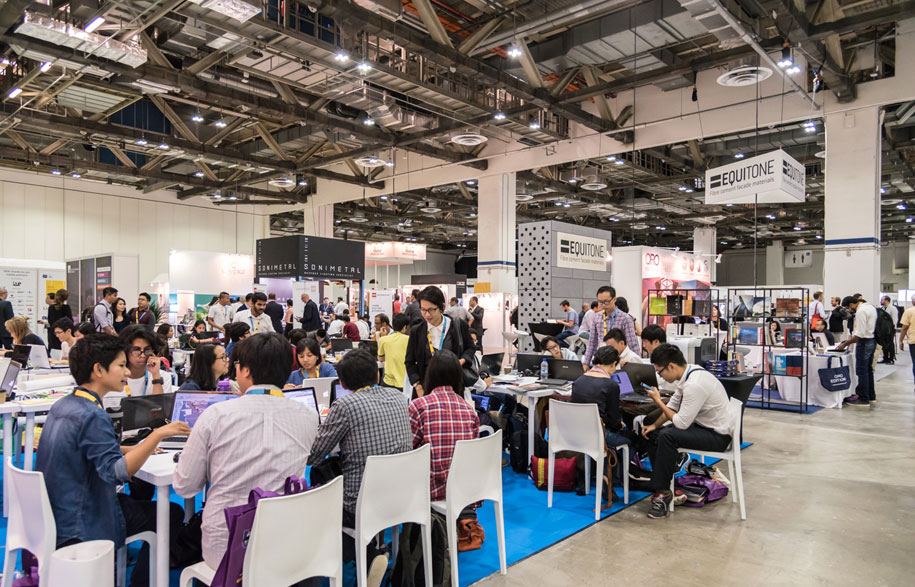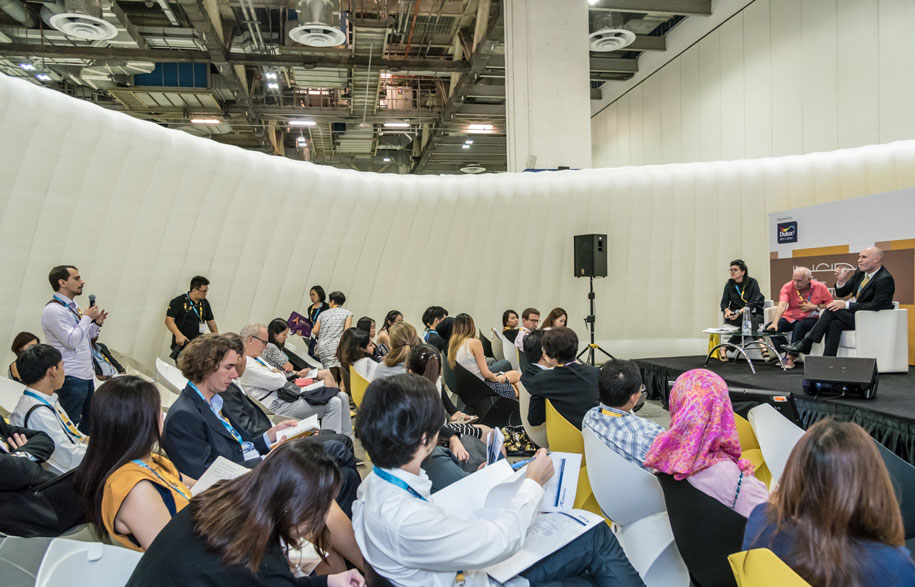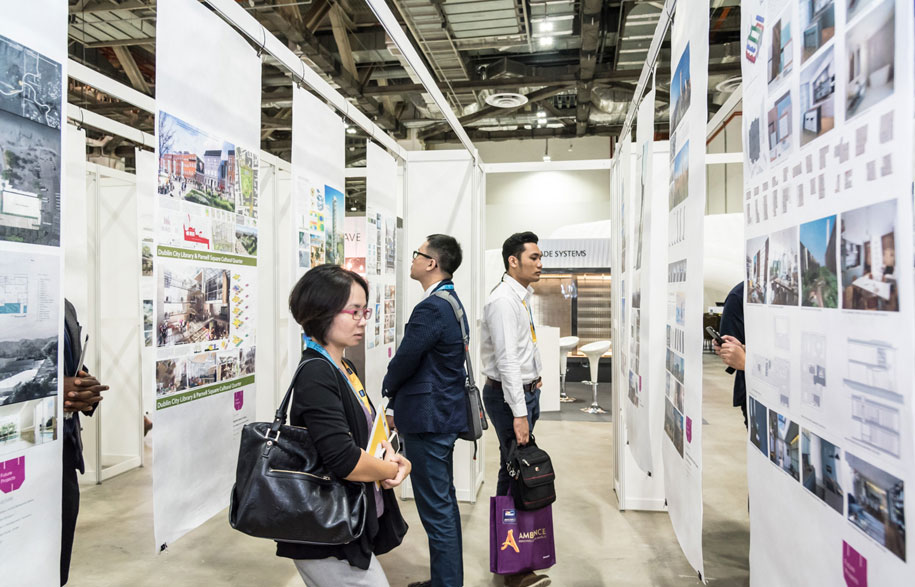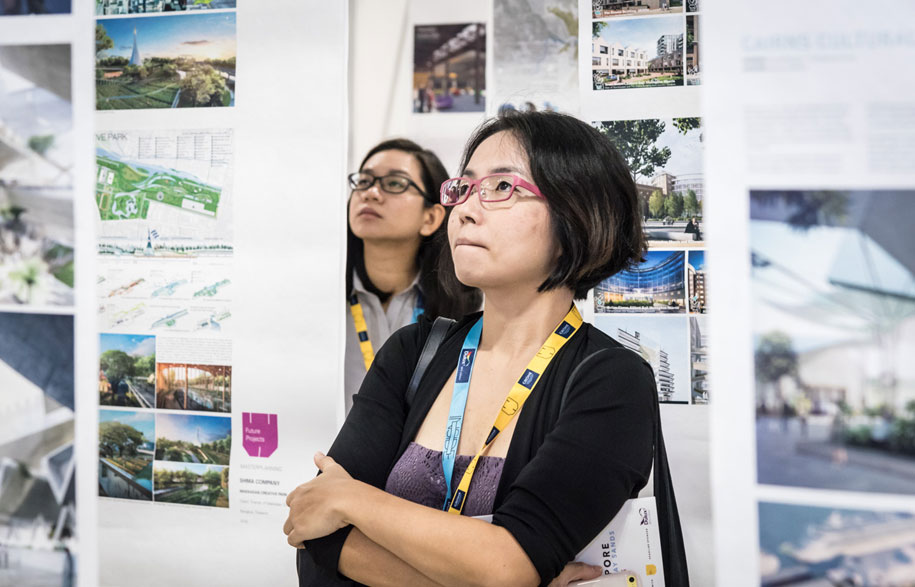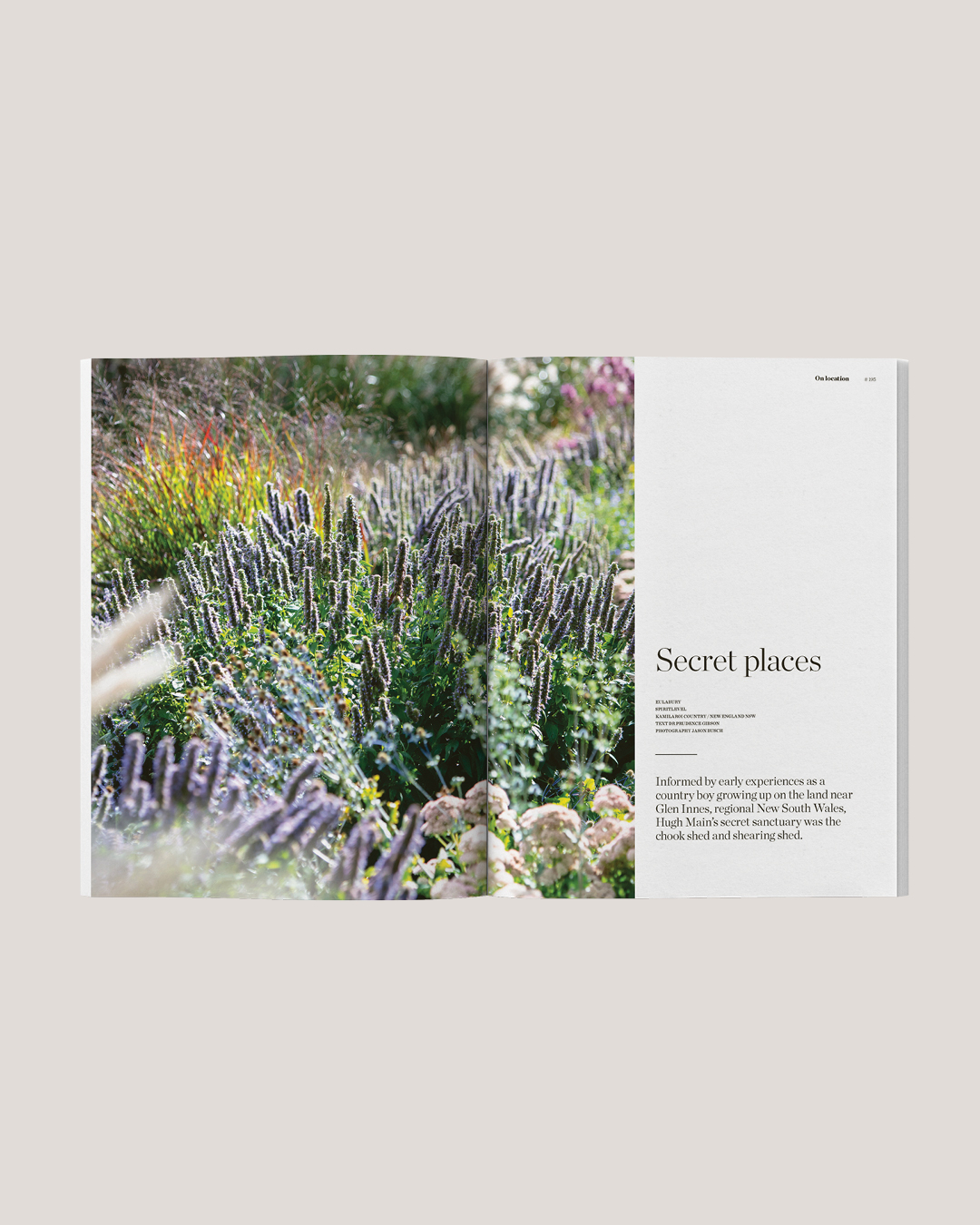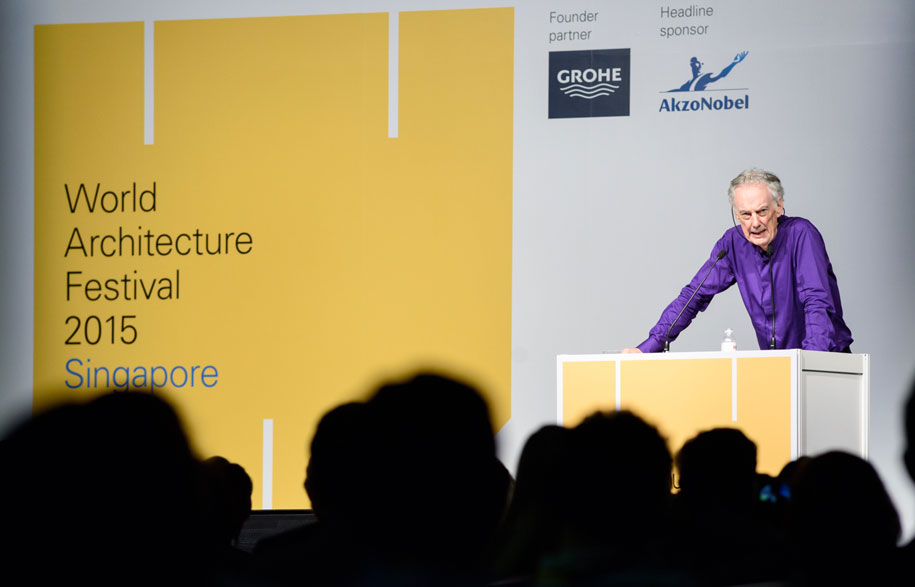For four years, the World Architecture Festival (WAF) and INSIDE World Festival of Interiors (INSIDE) have brought a global architecture and design discussion to Singapore’s shores. The representation of regional work in the award’s cycles has been considerable, with shortlisted entrants required to present their projects in person at the event.
This year was no exception, with many major awards going to projects from the Asia Pacific. The INSIDE World Interior of the Year award was won by Hotel Hotel in Canberra (designed by March Studio), and the WAF World Building of the Year accolade went to The Interlace in Singapore (designed by OMA and Buro Ole Scheeren).
Next year, the festival will return to Europe – specifically Berlin – signalling the start of a new era in which a different city will be visited every year. “Our model will be moving the main event every year, but having a series of satellite events around the world, which we’re starting to develop and which will become our fixed points. So it’s looking good going forward,” explains WAF programme director, Paul Finch.
It will be interesting to see if next year’s awards cycles offer a similar proportion of regional work, given the greater travel distances involved (on top of the entry fees).
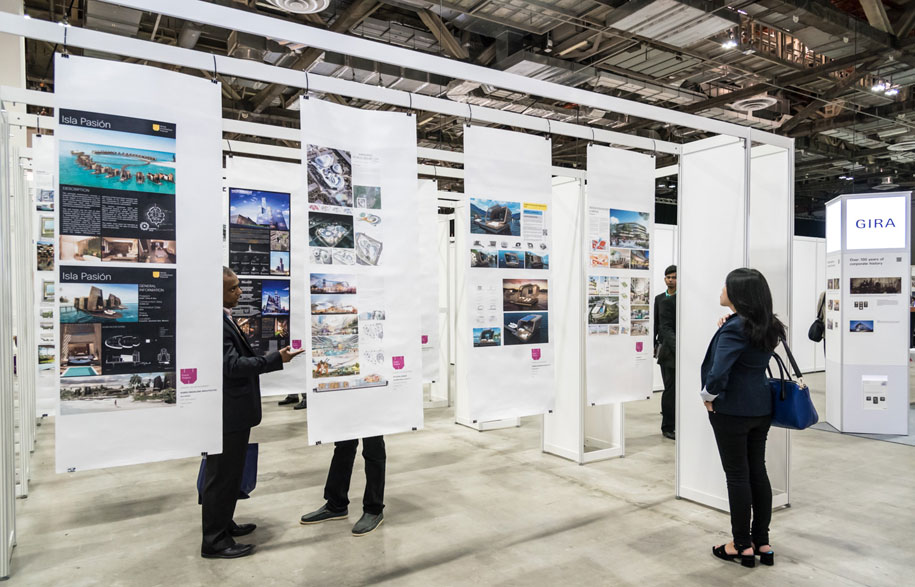
In tribute to its final year with its host country, and in celebration of the island nation’s fiftieth year of independence, the WAF 2015 programme gave special emphasis to Singapore and its rapid transformation. The keynote lectures on day one both focused on Singapore’s transformation.
First up, Liu Thai Ker, senior director at RSP Architects Planners & Engineers, presented a review of 50 years of planning in Singapore, which he was deeply involved in. He demonstrated the phenomenal detail with which the future form of the city state has been devised over the years.
Later, Charles Jencks, author, critic, sculptor and landscape architect, discussed the lessons demonstrated by Singapore for world architecture. He coined the term “socitalism” and used it to describe the socialised capitalism that has underpinned Singapore’s development. He spoke of the global architectural afflictions of “generic individualism” and “bigness”, and pointed out how, in his view, some projects in Singapore – like the Supertrees at Gardens by the Bay – represent the creation of meaningful icons through their details of personalisation, such as the colours that are specific to place.
A ‘City Update’ on Sydney was presented by Michael Heenan, CEO and principal of Allen Jack+Cottier, on day three. He presented a picture of a developing metropolis – a “crane city” – facing serious issues, such as clogged roads, overcrowded schools and expensive housing, and highlighted that Sydney will need to double its number of homes in the next 50 years. He pointed to the establishment of new corridors of growth as a way forward, and highlighted a number of zones that his firm is currently active.
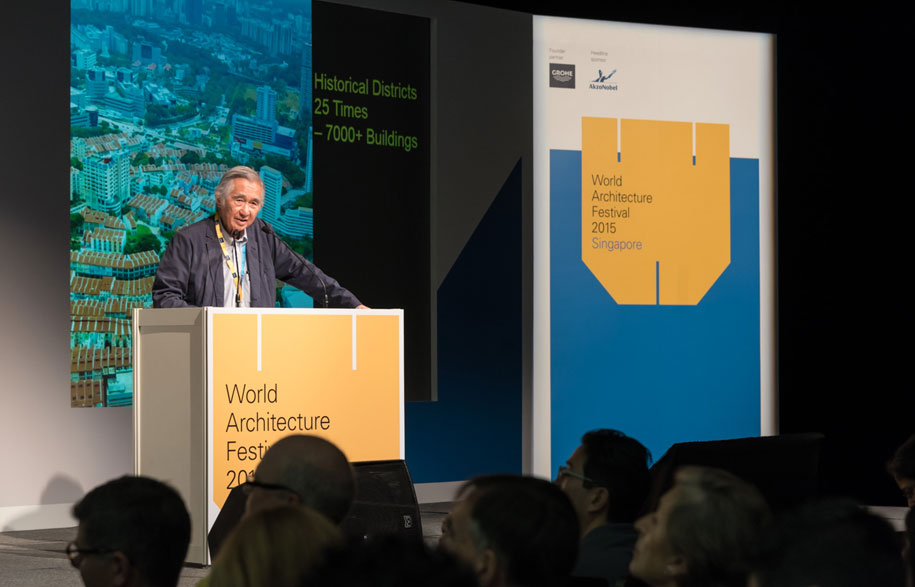
Australian projects received a number of awards. Hotel Hotel won the INSIDE Hotels category before picking up the overall INSIDE award. The University of Queensland Oral Health Centre by Cox Rayner Architects won the INSIDE Heath & Education category. The Casba development by Billard Leece / SJB Architects won the WAF Mixed-Use category. Quay Quarter, Sydney designed by Francis-Jones Morehen Thorp won the WAF Future Projects Competition Entries category. And the Walumba Elders Centre by Iredale Pedersen Hook won the WAF Heath category.
Singapore projects were also big winners. The Interlace won the WAF Housing category before taking out the overall WAF award. The WAF Future Projects Commercial Mixed-Use category was won by Gardens at Punggol by Serie + Multiply Consultants. A conceptual project for Singapore, Home Farm by SPARK, won the WAF Future Projects Experimental category. And Kki Sweets and the Little Drom Store by Produce Workshop won the INSIDE Retail category. There were also winning projects in Thailand, Vietnam, Japan, China and India. The WAF Landscape of the Year was Yanweizhou Park in China by Turenscape International.
When Paul Finch was asked what he thought were the most important topics being discussed this year, he noted that aside from the focus on Singapore, there is an ongoing concern about environmental issues. “One continues to see the question of how buildings can fit into their environments, and how they can absorb or incorporate nature into their designs. I think that’s another ongoing field of interest globally.”
INSIDE World Festival of Interiors
insidefestival.com
World Architecture Festival
worldarchitecturefestival.com
